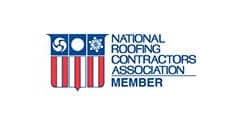You’re doing the right thing. You have requested estimates from three contractors for your home improvement or remodeling project. Now you’re meeting them one at a time to discuss your project. While the conversation might center around the scope of the project, you should spend some time analyzing this person whose company might me hired to come in and reshape your home.
- How long have you been in business?
- Are you licensed and registered in this county, parish, and commonwealth?
- How many projects like mine have you completed in the last year?
- Will my project require a permit?
- Will you be using subcontractors on this project?
- Are there any complaints filed against you with the BBB?
- What types of insurance do you carry?
Contractors should have personal liability, worker’s compensation and property damage insurance coverage. Ask for copies of insurance certificates or use a contractor prescreening we service such as BestContractors.com where insurance coverage is verified.
You should be extra diligent verifying a contractor’s license if you live a disaster area. Out of state contractors find it lucrative to work in disaster areas because homeowners who are anxious to get their damaged homes repaired will often not get –or are unable to get—multiple estimates for repairs. Most states require out-of-state contractors to pass local licensing board examinations to obtain permits.
Never begin a project–even a modest remodel—with an unlicensed contractor or one who does not obtain permits himself. The cost of correcting work not completed to local building code requirements can easily wipe out any savings you might have gained from hiring an unlicensed contractor.
A complaint filed against a contractor with a local BBB doesn’t necessarily mean you should avoid the contractor. Home improvement projects are complicated undertakings and misunderstandings can arise. How the contractor settled the complaint can offer insight to his approach to customer service and how much value he places on his reputation. Give credit for amicable settlements.
NOTE: This is intended for informational use only. None of the content of this site including this page is intended to render legal advice. You should always seek the advice of your legal counsel before taking any action based upon information found at this site.








